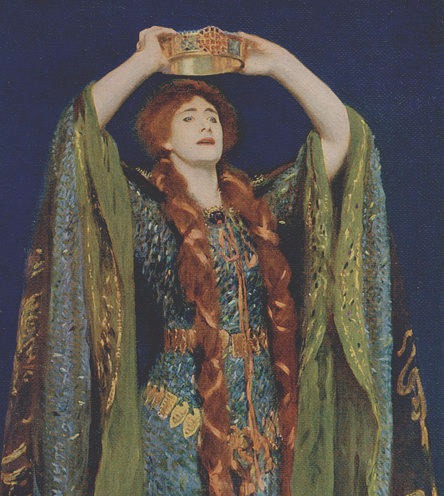Lady Macbeth is a significant character in Shakespeare’s play “Macbeth.” She plays a critical role in the plot and contributes to the themes of the play in several ways. Her character is complex, and her actions have a profound impact on the events of the play.
From her first appearance in Act 1, Scene 5, Lady Macbeth is portrayed as a strong and ambitious woman who desires power and control. She immediately recognizes the potential of the prophecies that Macbeth receives from the witches and decides to manipulate her husband into seizing the throne by any means necessary. Lady Macbeth is the driving force behind Macbeth’s actions and is often seen as the primary antagonist of the play.
One of Lady Macbeth’s most notable actions is the manipulation of her husband. She challenges Macbeth’s masculinity and goads him into committing regicide, telling him that he must “screw [his] courage to the sticking-place” and “be so much more the man” to achieve their goals. She plays on Macbeth’s insecurities and convinces him that murdering King Duncan is necessary for their success. Lady Macbeth’s manipulative tactics highlight the dangerous consequences of unchecked ambition and the corrupting influence of power.
Lady Macbeth also plays a significant role in the play’s themes of gender and masculinity. She challenges traditional gender roles and expectations, taking on a more assertive and dominant role in her relationship with Macbeth. Her actions highlight the idea that women can be just as capable of ruthless ambition and violence as men. However, her attempts to subvert gender roles ultimately lead to her downfall, as she becomes consumed by guilt and madness.
Another crucial aspect of Lady Macbeth’s character is her guilt and descent into madness. After the murder of King Duncan, Lady Macbeth initially appears strong and in control. However, she becomes increasingly haunted by her guilt, unable to wash the imagined blood from her hands and plagued by hallucinations. Her decline into madness is a stark contrast to her earlier confidence and highlights the psychological toll of the crimes that she and Macbeth have committed.

Furthermore, Lady Macbeth’s character contributes to the play’s overarching themes of the corrupting influence of power and the consequences of unchecked ambition. She is willing to do anything to achieve her goals, and her actions ultimately lead to her downfall. Lady Macbeth’s character is an example of how the pursuit of power and success can have devastating consequences and highlights the dangers of ambition without moral boundaries.
In conclusion, Lady Macbeth is a crucial character in “Macbeth.” Her manipulative tactics and desire for power drive the plot and contribute to the play’s themes of ambition, gender, and the corrupting influence of power. Her complex character, guilt, and eventual descent into madness provide a stark contrast to her earlier confidence and highlight the devastating consequences of unchecked ambition.